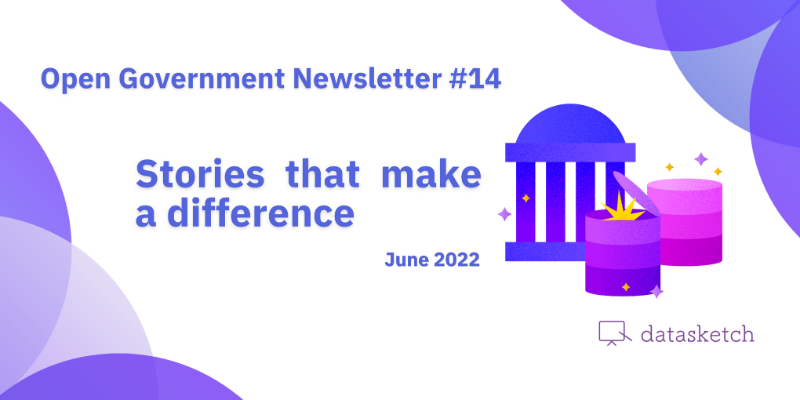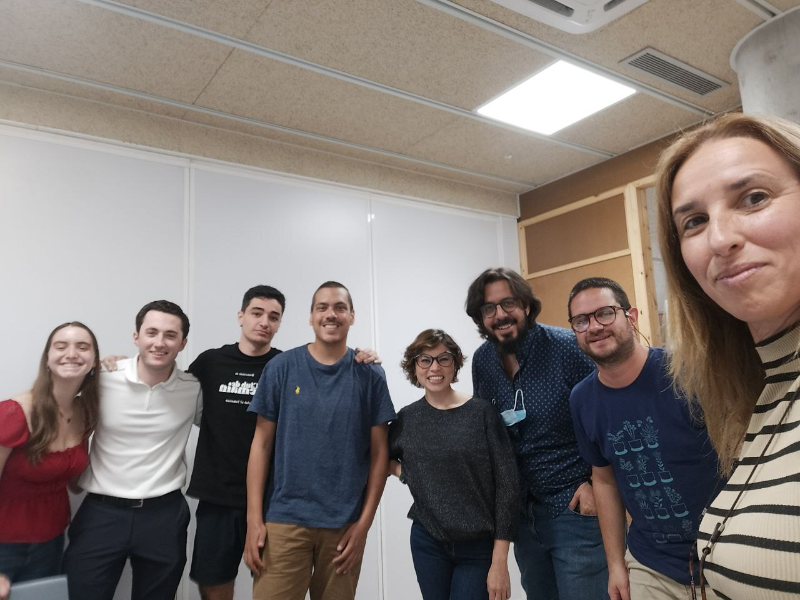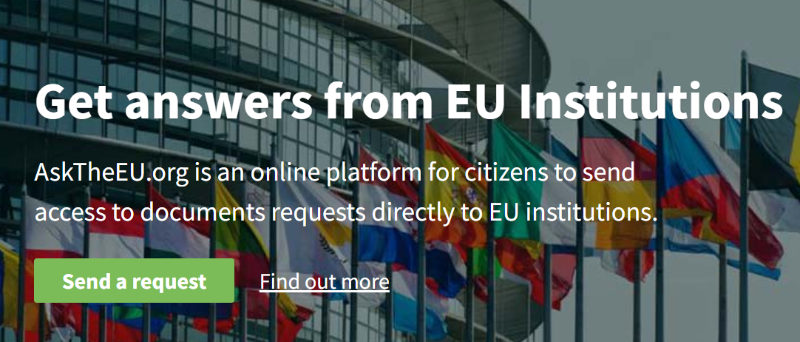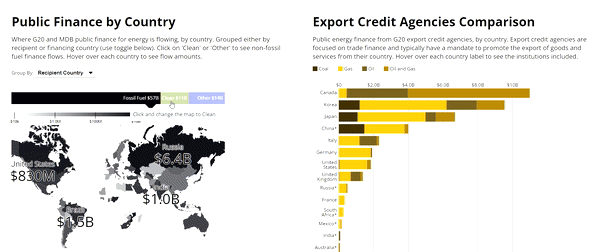Stories that Make a Difference - Open Gov #14
Our selection of proposals for rethinking open government. June 2022.
Available in:

We are Datasketch. In recent weeks, part of our team has been on tour in Europe, and we have met up with friends like @_PoliticalWatch, @TransparenteGob, or @StorydataBcn, who, just like us, promote initiatives of openness, participation, and innovation based on public information. We are back full of energy, then!

Part of Datasketch team + StoryData team. What will come from here?
In this issue, which you can read in your browser, we compile proposals that make us rethink open government and look for new ways to democratize this model.
Storytelling Open Government
More than ten years ago, the Open Government Partnership (OGP) and multiple reformers began the work of advancing open government around the world. In that time, tremendous progress has been made, and great impact stories have been built. However, knowing how to tell them and bring them closer to the people is a challenge that is sometimes too big for us.
On the occasion of the launch of its OpenStories platform, OGP is presenting three workshops entitled “What makes a good open government story”. They will be held from June 14-16, two of them in English and one in Spanish. We welcome this initiative.
In the link, you will be able to know the details, schedules, and register. ✏️
Ask the EU
Accessing information from institutions such as the European Union can be an exhausting task. Running up against bureaucracy, time, and requirements can slow anyone down. Journalists know this very well, and it was one of the big topics discussed last week at the DataHarverst, a congress that brings together data journalists from all over Europe, which several members of Datasketch were lucky enough to attend.
In order to facilitate this work, Access Info Europe has an online platform that helps citizens and researchers to send documentation requests directly to the European Union institutions, allows identifying the institution that has the information, and fosters research partnerships.
Thanks to this tool, information has been obtained on the investment of European recovery funds in multiple countries or spending on immigrant deportations (es), current issues with a high social impact.

Data Science for Local Governments
The Latin American Faculty of Social Sciences (FLACSO) in Chile launched the Diploma in Data Science, Local Governments and Territory. Its objective is the implementation of data science tools in the management of local public policies, whose territorial approach will be done with Geographic Information Systems (GIS).
In addition to the context of the fourth industrial revolution and its relationship with socially relevant problems at the local level, the diploma course provides tools for the value chain of working with data, namely data management, analysis, and visualization.
The diploma course will train and work with the R programming language and other open-source tools. The diploma course is virtual and starts on June 14. You are just on time to register!
Get more information. 👩🏻🎓
Energy Public Financing
In recent months, rising energy prices have been a hot topic globally, as they affect the basic economy of households. Knowing how energy is financed and who are the key players in this process helps to understand its influence and impact on the environment.
The Energy Public Finance Database is a project of Oil Change International. It collects transaction-level data on financing from export credit agencies, G20 development finance institutions, and large multilateral development banks, which have significant government holdings.
The data shows that between 2018 and 2020, for every dollar spent on clean energy, 2.5 times more is spent on fossil fuels. Which goes directly against the global climate goals of the Paris Agreement.

I want to read more!
- Capabilities, Experiences, and Networking for Public Innovation (es) | Innolabs Network Annual Meeting. 🗓️
- San Francisco Government Data Visualization Standards | datasf 🏙️
- Feminist Open Government from OGP (es) | Ana Corojan 💪🏿
- Technical standards for proper data governance (es) | datos.gov.es 🗃️
- Green Recovery Tracker 🌳
Thanks for making it this far. We look forward to seeing you in our next issue!😻




